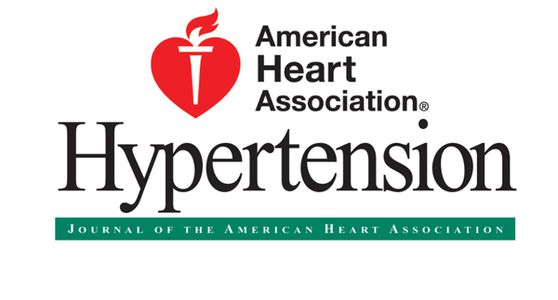
A Scientific Statement From the American Heart Association (AHA)
Beyond Medications and Diet: Alternative Approaches to Lowering Blood Pressure - A Scientific Statement From the American Heart Association
Abstract:
"This American Heart Association scientific statement aims to summarize the blood pressure–lowering efficacy of several alternative approaches and to provide a class of recommendation for their implementation in clinical practice based on the available level of evidence from the published literature."(Abstract - page 2)
Further in the abstract:
"It is the consensus of the writing group that it is reasonable for all individuals with blood pressure levels >120/80 mm Hg to consider trials of alternative approaches as adjuvant methods to help lower blood pressure when clinically appropriate. A suggested management algorithm is provided, along with recommendations for prioritizing the use of the individual approaches in clinical practice based on their level of evidence for blood pressure lowering, risk-to-benefit ratio, potential ancillary health benefits, and practicality in a real-world setting" (Abstract - page 2)
Methods and Evidence Review (page 3)
"The writing group then classified the approaches into 3 broad categories: behavioral therapies, including meditation techniques, yoga, biofeedback, and relaxation or stress-reduction programs; noninvasive procedures or devices, including device-guided breathing modulation and acupuncture; and exercise-based regimens, including aerobic, resistance, and isometric exercise methods."
Behavioral Therapies
(The broad categorie of behavioral therapies is devide in 4 sub-groups):
- Meditation Techniques: "we have divided practices into focused attention (ie, mantra and training awareness); Transcendental Meditation (TM), a technique to transcend thought and to experience pure awareness, typically by employing specific mantras; and contemplative forms (eg, Zen and mindfulness), including the Mindfulness-Based Stress Reduction (MBSR) program."
- Biofeedback Techniques: "Techniques that may be used include cognitive behavioral therapy, relaxation therapy, guided imagery, and psychological education."
- Yoga: "The term yoga (Sanskrit meaning union) has many connotations. It originated in ancient India as primarily a word to describe a contemplative state with the aim of cessation of mental activity and attainment of a state of superior consciousness."
- Other Relaxation Techniques: Relaxation and stress-reduction programs can be heterogeneous in nature and often comprise a multitude of approaches used in conjunction. This makes a uniform assessment of the treatment-associated BP-lowering responses difficult. There may also be overlap in the methods used to elicit a relaxation response with the approaches previously reviewed (eg, meditation).
The Summary and Clinical Recommendations (concerning the group of Behavioral Therapies)(page 6)
"The writing group conferred to TM a Class IIB, Level of Evidence B recommendation in regard to BP-lowering efficacy. TM may be considered in clinical practice to lower BP.
Because of many negative studies or mixed results and a paucity of available trials, all other meditation techniques (including MBSR) received a Class III, no benefit, Level of Evidence C recommendation. Thus, other meditation techniques are not recommended in clinical practice to lower BP at this time."
Conclusion :
TM is the only among the behavioral therapy that has proven its efficiency to lower BP and is recommended by AHA as adjuvant methods to help lower blood pressure.

Table 2. Class of Recommendation and Level of Evidence for Blood Pressure Lowering
Hypertension 2013 Jun;61(6):1360-83. doi: 10.1161/HYP.0b013e318293645f. Epub 2013 Apr 22
KEYWORDS: AHA Scientific Statement, blood pressure, cardiovascular diseases, complementary therapies, hypertension, prehypertension, preventive medicine
Tuesday, 17 May 2016: The Ministry of Health of the Grand Duchy of Luxembourg Issues Guidelines against Hypertension, Among Luxembourg's Leading Causes of Death and suggests regular practice of Transcendental Meditation.


